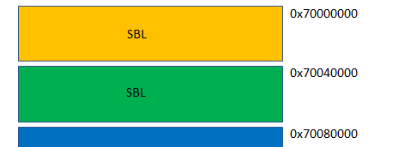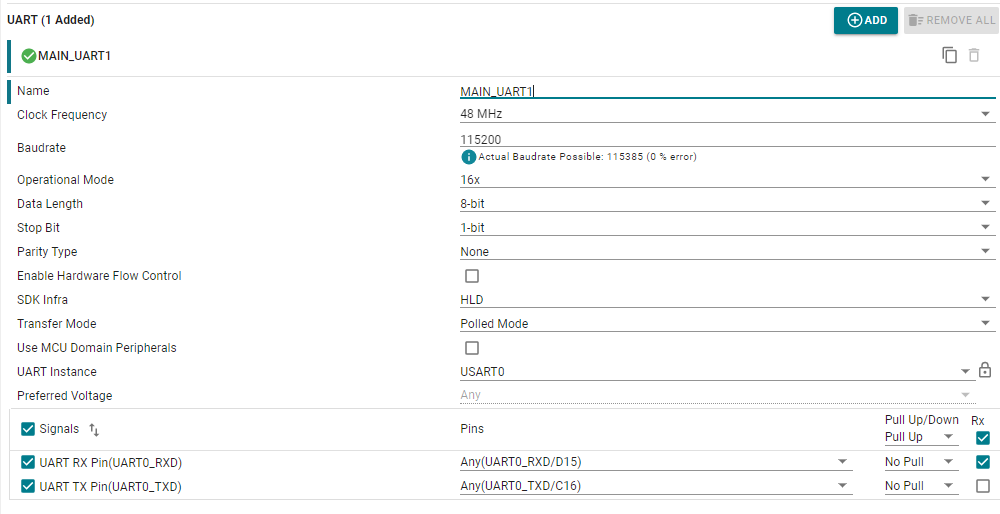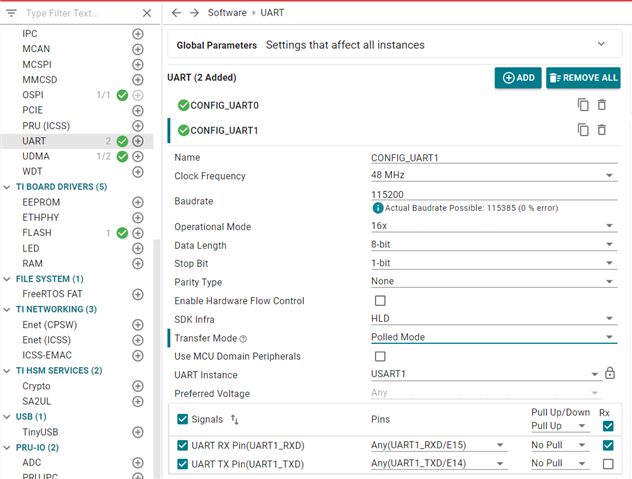Other Parts Discussed in Thread: SYSCONFIG
Tool/software:
I'm trying to update our project from SDK 9.00 to 9.02.01
I'm compiling both our bootloader and main firmware with the new SDK
When I boot our board, I get the following error
Bootslot start addr: 0x100000
TR Response failed for transfer : SRC = 0x60120000, DST = 0x70070000, SIZE = 64512
ASSERT: 0.702190s: ospi/v0/dma/udma/ospi_dma_udma.c:OspiDma_udmaUpdateSubmitTR:242: FALSE failed !!!
Here is the code from the SDK where it fails
/* Wait for return descriptor in completion ring - this marks transfer completion */
while(1)
{
status = Udma_ringDequeueRaw(Udma_chGetCqRingHandle(chHandle), &pDesc);
if(UDMA_SOK == status)
{
/* Check TR response status */
CacheP_inv(trpdMem, trpdMemSize, CacheP_TYPE_ALLD);
trRespStatus = UdmaUtils_getTrpdTr15Response(trpdMem, 1U, 0U);
if(trRespStatus != CSL_UDMAP_TR_RESPONSE_STATUS_COMPLETE)
{
DebugP_log("TR Response failed for transfer : SRC = 0x%X, DST = 0x%X, SIZE = %u\r\n", (uint32_t)src, (uint32_t)dst, length);
DebugP_assert(FALSE);
}
break;
}
}




